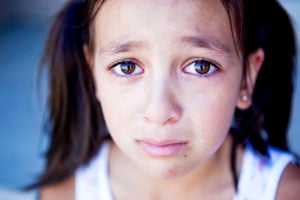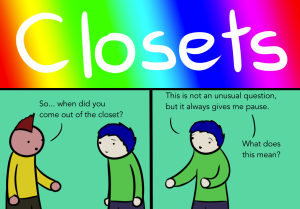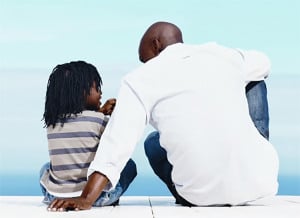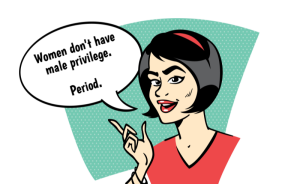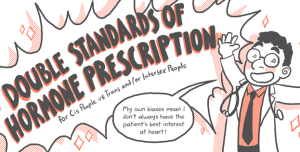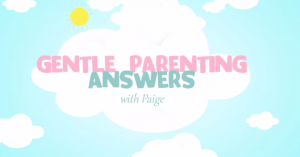
A parent hugging a small child in nature. Both smile happily as they look into the camera.
My sister-friend recently wrote a piece in defense of public schools.
Having sent her daughters to both (expensive) private schools and (free) public ones, she shared her experiences and encouraged parents to become part of their children’s educational journey by participating in activities like becoming a room parent and engaging with faculty and staff.
“I worked as the room mom in both classes, volunteered in the library, made nice with the administration, and happily helped my babies foster class friendships outside the school. Public schools are what we parents make them.”
Having known the author’s family for a long time, and witnessing how she and her husband prioritize their children, I understand her perspective.
Unfortunately though, I’m also well aware of the many parents whose jobs offer far less flexibility than her husband’s and hers, making it unfeasible for them to make nice with the administration or volunteer regularly at the school.
My mother, for example, raised my brothers and me primarily on her own. She almost always worked two jobs, and they were usually in Miami’s business district, more than thirty miles from our public schools. It was a challenge for Mom to come to our school, and when she did, she usually had to take unpaid time off to do so.
Mom cared just as much about her children’s education as Denene and Nick; she just didn’t have job(s) that allowed her to fill the gaps that most children will fall into because of the structure of many American public schools.
So, what happens to those children? The ones without the privilege of parents whose work makes room for the level of involvement that increases the chances of real learning taking place in a school setting?
Even options like homeschooling and unschooling come with the challenge that parents working outside the home have to battle with daily. In my own household, Kris (my husband) and I have the benefit of being self-employed and working primarily from home.
But what about the parents who would much prefer to take their children out of school, but need to work outside the home to provide for their families?
These children still belong to the communities in which they live, yet the government makes no room for them in its consideration of educational options. I’m not in support of public schools as the primary (and in many states, required) method of fostering learning and offering support for children.
Instead, I think we should be looking at how children learn, and creating a variety of open learning ecosystems to support, challenge, and nurture young people’s exploration of various topics and tools.
School, in its current form, makes it easy for parents to feel like we’ve got the education base covered. We send our children there because, conceivably, it’s where they get the intellectual and social guidance they’ll need to thrive in adulthood.
But I know so many adults who went through the school system and are now unhappy and not successful by their own standards.
For me, this is a clear indicator that we shouldn’t continue to send our children through a varied version of the same system, expecting that they’ll somehow yield a different result.
Essentially, if parents want to foster a love of learning and offer practice in personal leadership – both important life skills – school is not automatically where that happens.
Particularly if you can’t be there as homeroom dad or PTA board mom because of how you earn money to care for your family’s needs, an engaged school experience is the exception, not the norm.
On top of that, school culture perpetuates some dangerous ideas that I believe we need to stay away from if we want our children to practice many of the skills they’ll need to thrive as adults.
3 Ways School Has Failed Our Children
1. No Place for the Pivot
School, in some ways, is like a train going full speed in the direction of success. But since the idea of success, as well as the variety of resources available to achieve success, have changed so much since the inception of compulsory schooling, the train needs to be stopped and reevaluated.
But it seems that society has a different perspective.
The train has left the station and is going fast – so instead of stopping it and building new transportation systems altogether, we paint the train’s cars, we add stronger potpourri to offset the stinky carpet, we blame the conductors, we even blame the passengers and the people who raised them.
All of that is easier than facing the reality that school can, for some, foster learning. However, learning – not schooling – should be the focus.
This is why we marvel at successful people like Oprah or Steve Jobs – because we feel that they’ve somehow figured out how to succeed. And we do call it “figuring out,” because despite the ongoing sales pitch about the critical importance of schooling children, so many of us become adults who are emotionally unhappy and financially far from the quality of life we’d like to be able to fund.
And this emotional and financial funding should be accessible, in theory, by applying all the knowledge we gained in school.
I don’t expect school to give us all the answers, but certainly the tools. Yet the obstacles to attaining these tools – racism, adultism, and our tendency to focus on processes over people – are ever-present and often defended.
So if an adult doesn’t have everything they want out of life, we should be able to blame the school system, since that’s its primary role.
Is someone unhappy and unsuccessful because they were a shitty student?
Is someone’s mistake keeping them down because they just don’t understand how to apply the stellar pivoting skills we all learned in school?
Is an adult in an unstable financial position primarily because they ignored all the money management skills we all grasp so firmly through our public education?
With all those social skills school children get (and home/unschooled children lack), shouldn’t most adults have healthy relationships? Happy marriages? Great friends? A strong sense of self?
But we don’t. And I don’t blame school for every unhappy adult.
I do, however, see the need for an updated approach to education that prioritizes the practice of real-life pivots.
And by that, I mean we stop trying to make children avoid mistakes and instead understand that mistakes can be great catalysts for real learning. I’ve witnessed this as my twelve-year-old went from (the mistake of) staying up late to watch horror movies, to setting her own early bedtime so she could be awake and ready for morning voice acting auditions or online writing group sessions.
That would mean we’d have to individualize learning so that we see what mistakes each child tends to make, and how we can support them in failing forward.
2. Competition Above Collaboration
I tried grad school for maybe two semesters before I damn near died from severe disconnect. I also couldn’t find it in me to accept the competitive nature of the space.
As South African self-directed education activist Zakiyya Ismail once explained: Community is such an important part of being African and Indian. For us, the notion of competing instead of collaborating is one of the many side effects of a more Eurocentric way of life – structural racism, essentially.
School, with its embedded message to one-up our classmates to be seen favorably by the people in power is a colonizer mentality, and it forces us to look at other people’s success as a threat to our own.
Case in point: During my grad school stint, our professor organized us in groups to work on a project. Throughout the semester, there was one young woman that had the highest overall scores in the class.
She and I ranked highest, and classmates would jokingly say they’d make sure to be in our groups when group projects came up. I found it all funny, but the other young woman (let’s call her Izzy) did not.
Izzy deemed me her sole competition and went off of me every chance she got. When we got random quizzes and regular tests, she would always want to know my score before sharing hers. She watched me often, and just seemed generally pissed that I existed, and was apparently bent on stealing her shine.
I’m Jamaican, and she was Nigerian, a factor she brought up constantly, citing some (unknown to me) history of our two cultures being natural competitors against each other. #dafuq
Umm… no, Izzy, that’s only in school and work settings, and it’s based on the absurd idea that two black immigrants in America have to fight for space on Master’s Plantation – also known as high class rank or a promotion at work.
Ultimately, I left the program – and Izzy and I never got civil with each other.
I wonder about Izzy from time to time. What if we were in an environment where she and I could collaborate?
Where we could self-select groups based on our interaction, choose an issue together, and then use the resources around us to meet up where we wanted and work toward a solution that we present, and not a presentation of information from books and shit?
What if we weren’t colonized to believe that there might only be room for a few smart black folks on the plantations that afforded us a means to financial security in America?
3. Whitewashing History
I wrote about the importance of telling children the truth in detail here. And for sure, this critique of high school history text books broke it all the way down, too.
Essentially, structural racism influences textbook authors in such a way that omits or misrepresents the contribution of non-white people in world history. As such, people of color, from school age, begin believing that white people are more accomplished, and even superior to other races of people.
This suppression of black and brown people’s contributions is evident in the way children are taught in history, mathematics, the sciences, and literature – all significant influencers of our perspectives on people and culture.
In the current school system, this racism also results in less adult guidance and more policing, as the data consistently demonstrates.
And for some of us parents and child advocates, it’s also about respecting children as creative, intelligent people whose opinions and desires should be more integrated into the structure of the place they are expected to spend most of their childhood: school.
Ideas on Stopping the Traditional School Train
I’m all for educational reform. Stop the damn train, Jamaal Bowman! I’m here for love-centered, anti-adultism, people-over-testing focused education. I support education that isn’t rooted in oppression, homogeny, and racism.
And while this is happening, we should expand the conversation from education reform that focuses on schools to an overarching approach to education that leaves plenty space for learning outside of school.
Here are four new baes to choose from if you break up with school.
1. Living as if School Didn’t Exist
Unschooling is essentially a curiosity-led approach to learning without testing and predefined curricula.
Unschoolers see learning as an organic byproduct of living and being a child, so we reject the premise of passing information from adults and books to children, based on what is believed (by adults) to be necessary learning. Children follow their interests, and their parents offer resources for their children to pursue and explore what they enjoy.
I offer examples of how that happens in our household in this piece, and also in this shorter anecdote.
2. Practicing Agile Learning
The educational model known as Agile Learning is rooted in the premise that children learn more from culture and environment than they do from content.
The term agile came from software development lingo for a work environment that replaces the hierarchy of bosses and set-in-stone processes with self-organizing groups designed to amplify creativity, innovation, and collaboration.
In education, agile means starting with the children, engaging their strengths, and valuing their role in their own lives. Children attend beginning-of-the-week meetings to schedule activities and set intentions. They then spend the week managing the steps to accomplishing each task or continuing each project.
Agile Learning facilitators introduce children to self-awareness practice through meetings and organization tools that help them set intentions and welcome accountability. The learning model is designed to be adaptable in learning communities (classrooms) as well as in-home for unschooling and homeschooling families.
3. Becoming Versed in Democracy
The democratic free schools educational model was designed to prepare students for democracy through practicing democratic citizenship. This model replaces homework, tests, and grades with activities and projects the children choose themselves, and manage with the help of adults.
“Here, students truly practice, rather than just read about, the principles of free speech, free association, and freedom to choose their own activities; where students vote on the rules that affect them, and serve on juries to try those accused of violating those rules.”
That’s an excerpt from this mega-informative piece that gives you a full view of democratic school structure and history.
4. Hybrids of Traditional and Organic Learning
Progressive private schools like The LIFE school (Atlanta, Georgia) have a heavy self-directed component and were designed to empower students to have more ownership over their education.
The model’s core values include social justice and intrinsic motivation among other ideas that determine the structure of each student’s unique learning goals.
Mikala Streeter explains, “High school is usually this mad dash of checking off boxes to create a great portfolio. Because of that, they lack of sense of who they are and how they can add value to the world. To identify needs in the community, and know how to problem-solve, to organize, and to bring about sustainable change inside their communities.”
The daily schedule in this type of progressive learning environment is organized around projects and questions instead of facts and tests. Collaboration is encouraged (damn, if only Izzy and I met there!), and the school’s resources are centered on facilitating deep dives into independent studies.
***
I don’t think there’s a one-size answer to these problems at all – which is why school should not be compulsory.
Instead of setting up schools, enforcing problematic testing, and forcing good teachers to choose testing scores over empowered guidance, government should start funding learning cooperatives and other alternatives to traditional public school.
These community-focused learning options are already popping up all across America: democratic free schools, Agile Learning centers, homeschool co-ops, and more. The problem is that these alternatives are not funded by government, making them highly inaccessible for many families of low and middle income socioeconomic means.
No doubt about it, we need education reform desperately.
But the real reform isn’t about classroom; it’s about children. It’s about people in our communities having access to resources that give them space to innovate, create, collaborate, and understand how they, in particular, live and learn best.
[do_widget id=’text-101′]
Akilah S. Richards is a Contributing Writer for Everyday Feminism. She is a six-time author, digital content writer, and lifestyle coach who writes passionately about self-expression, womanhood, modern feminism, location independence and the unschooling lifestyle. Connect with Akilah on Instagram, Tumblr, or her #radicalselfie e-home, radicalselfie.com. Read her articles.
Search our 3000+ articles!
Read our articles about:
Our online racial justice training
Used by hundreds of universities, non-profits, and businesses.
Click to learn more







